20080313-georgiou-mw14-collection-001
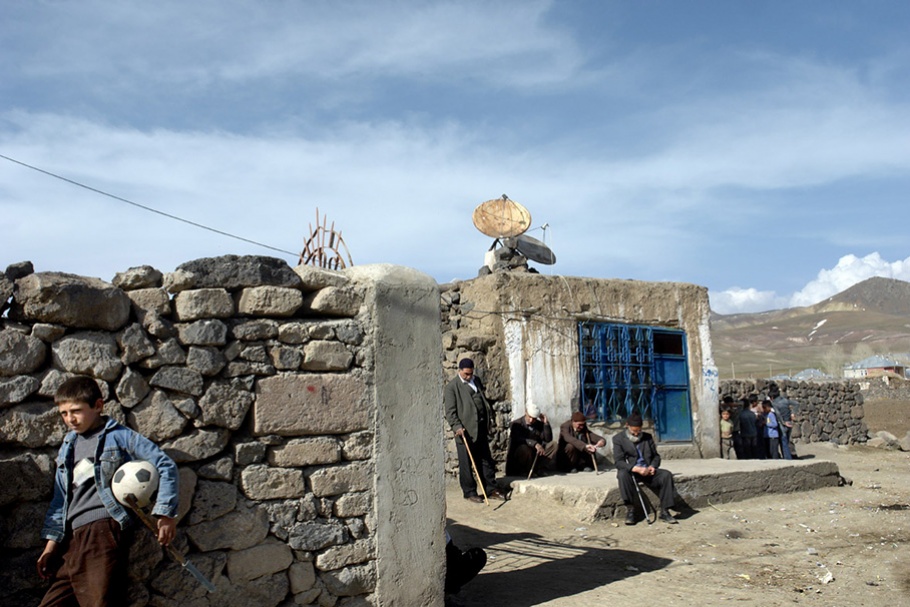
Kurdish Village, eastern Turkey, 2007.
20080313-georgiou-mw14-collection-002
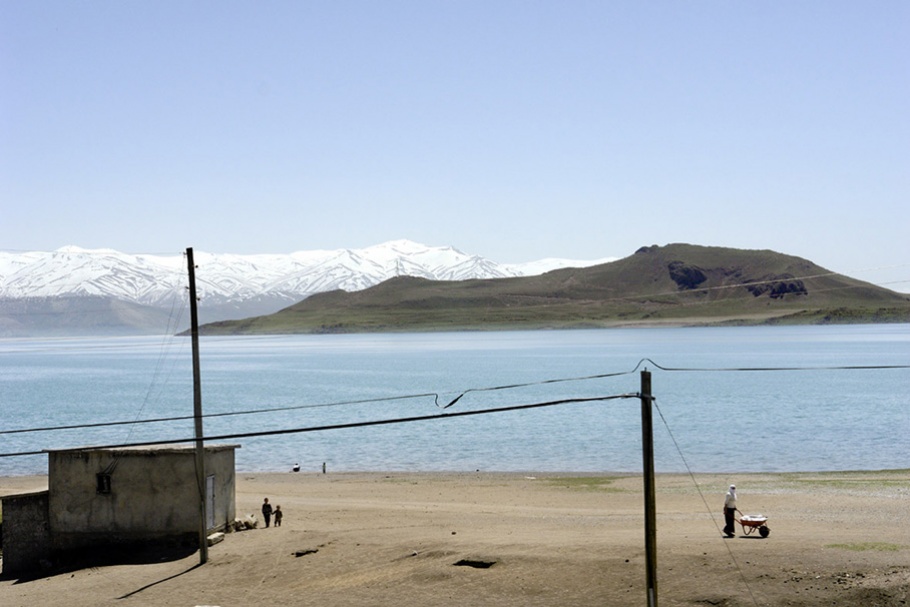
Lake Van, 2007.
20080313-georgiou-mw14-collection-003
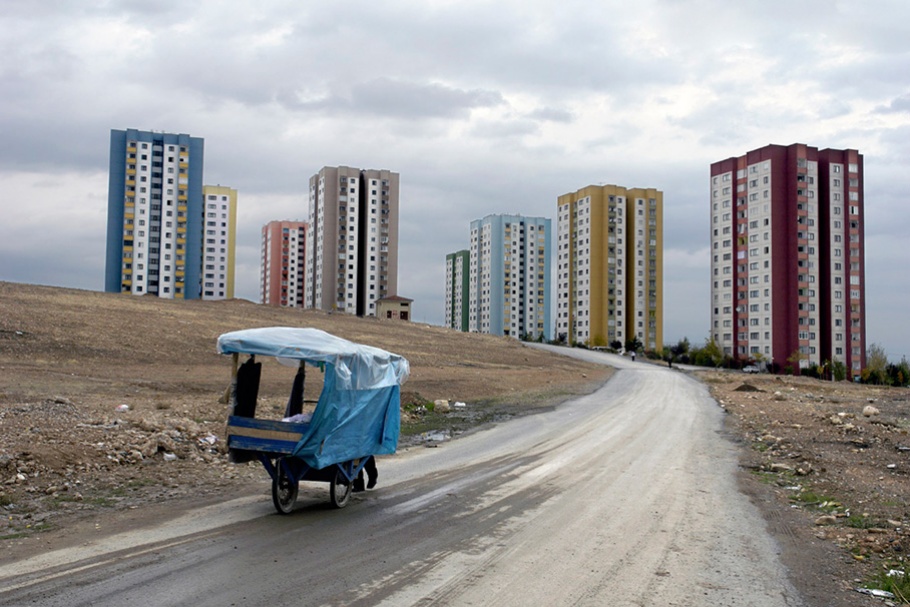
Housing project, Elazig, 2007.
20080313-georgiou-mw14-collection-004
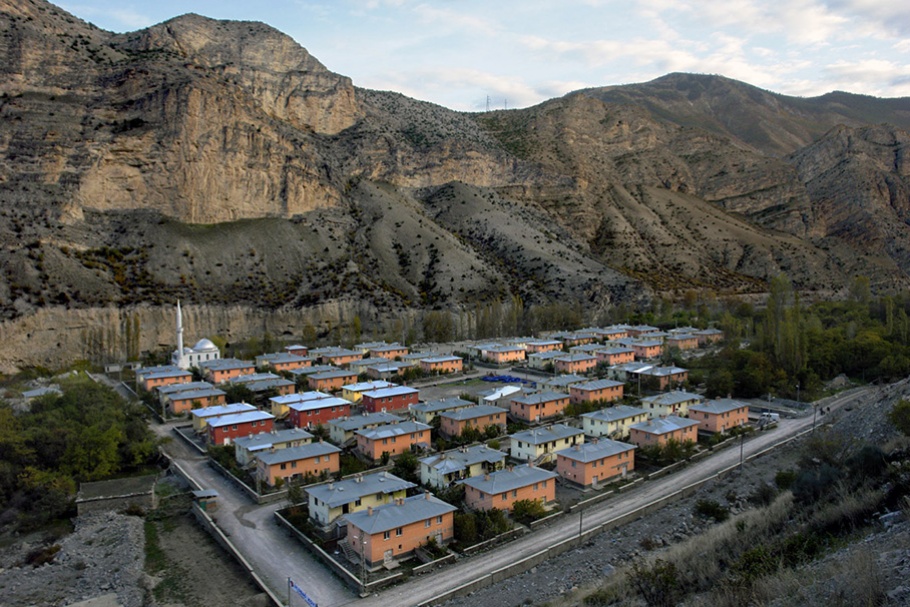
Ulubag village, northeastern Turkey, 2007.
20080313-georgiou-mw14-collection-005
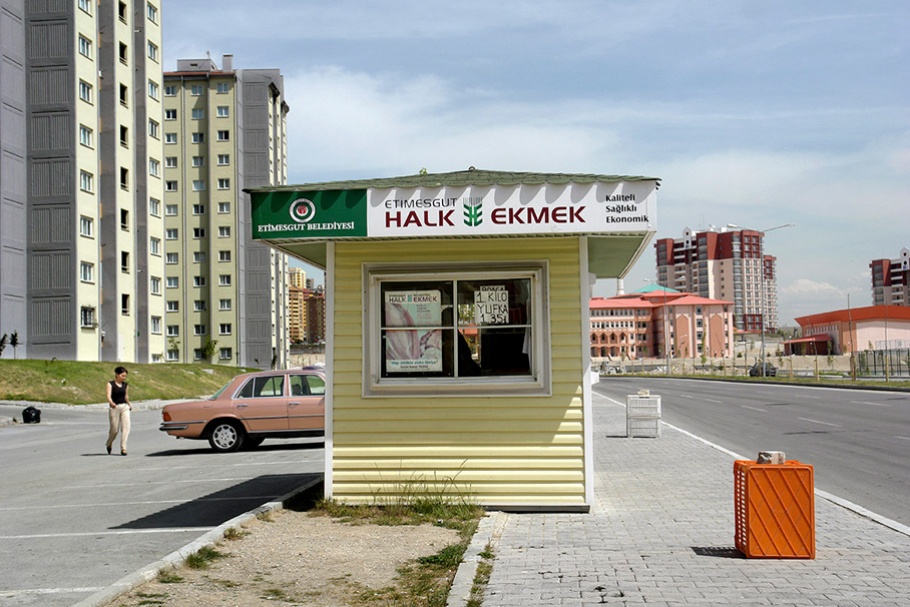
Suburb, Ankara, 2007.
20080313-georgiou-mw14-collection-006
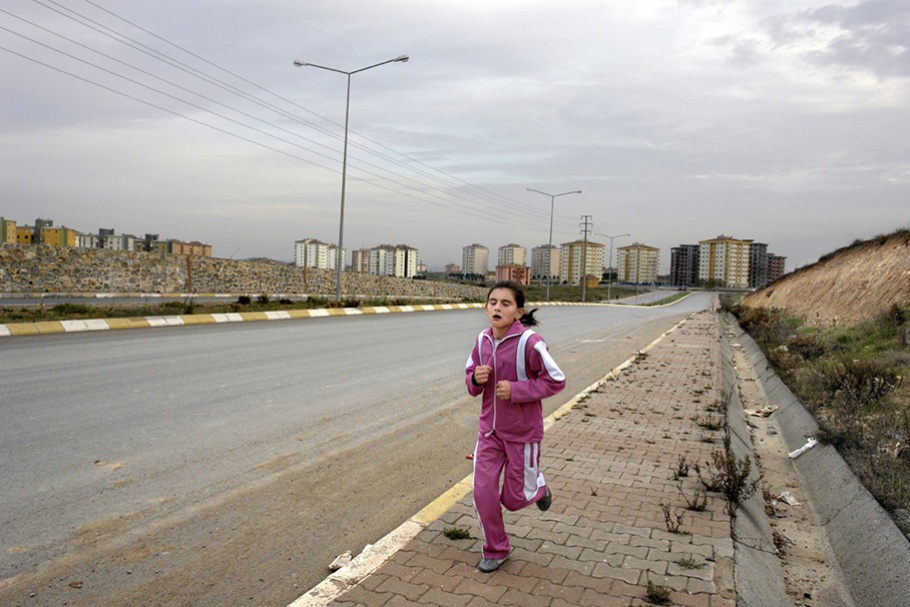
Suburb, Istanbul, 2007.
20080313-georgiou-mw14-collection-007
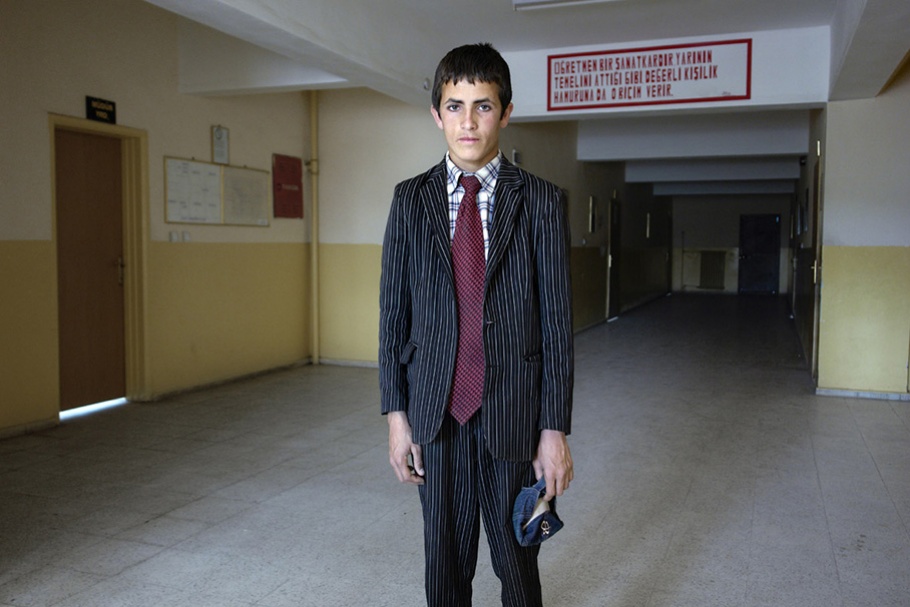
Schoolboy, Senkoy village, Midyat, southeastern Turkey, 2007.
20080313-georgiou-mw14-collection-008
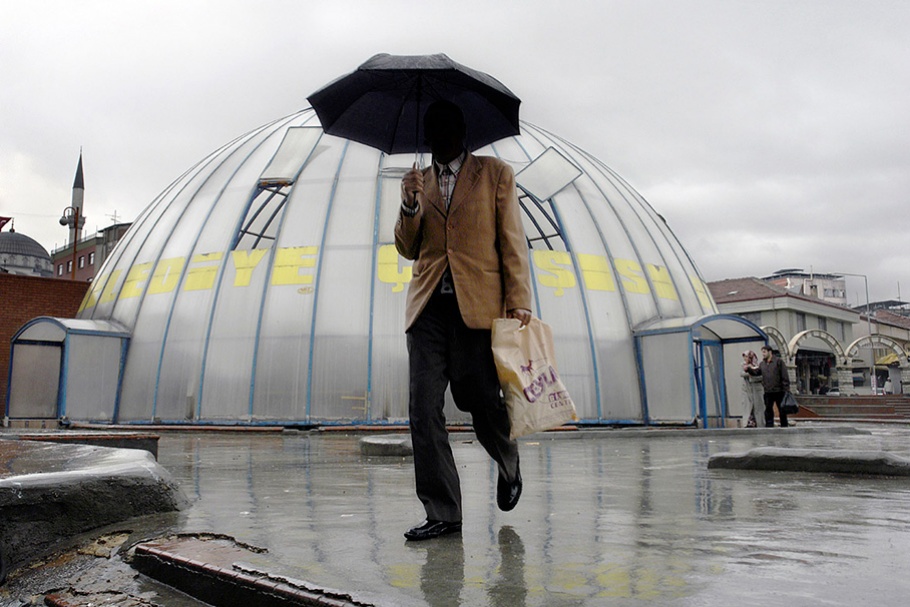
Shopping center, Elazig, 2006.
20080313-georgiou-mw14-collection-009
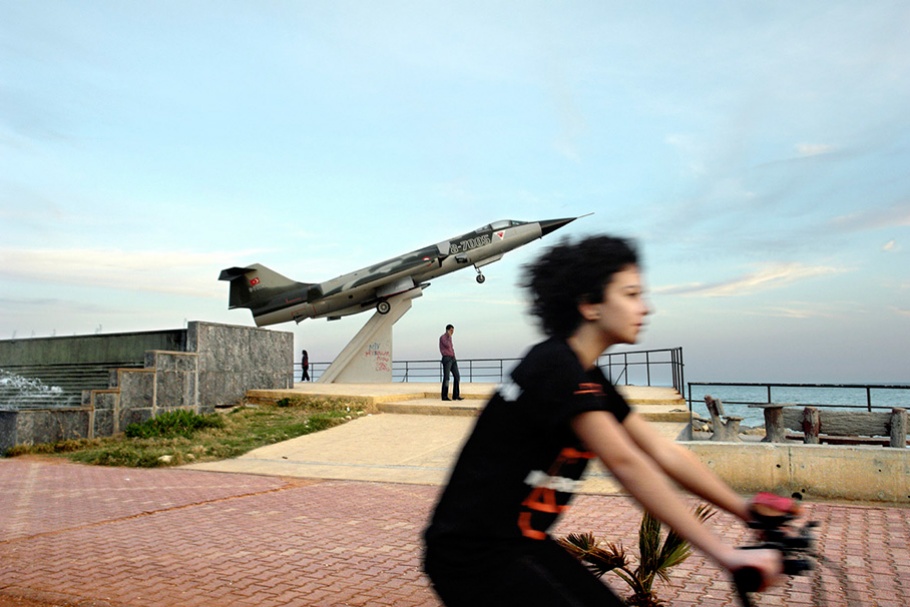
Mersin, 2007.
20080313-georgiou-mw14-collection-010
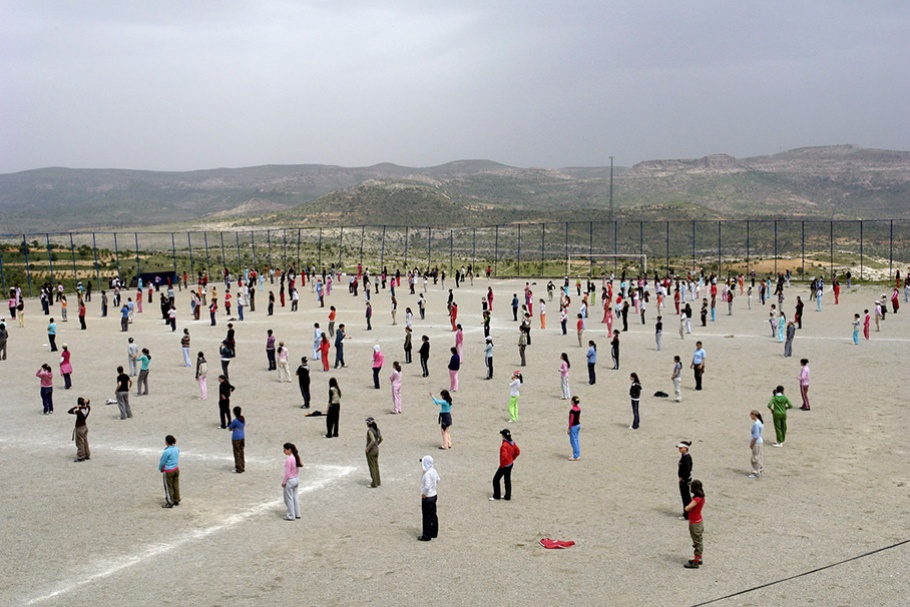
Playing field, Mardin, 2007.
20080313-georgiou-mw14-collection-011
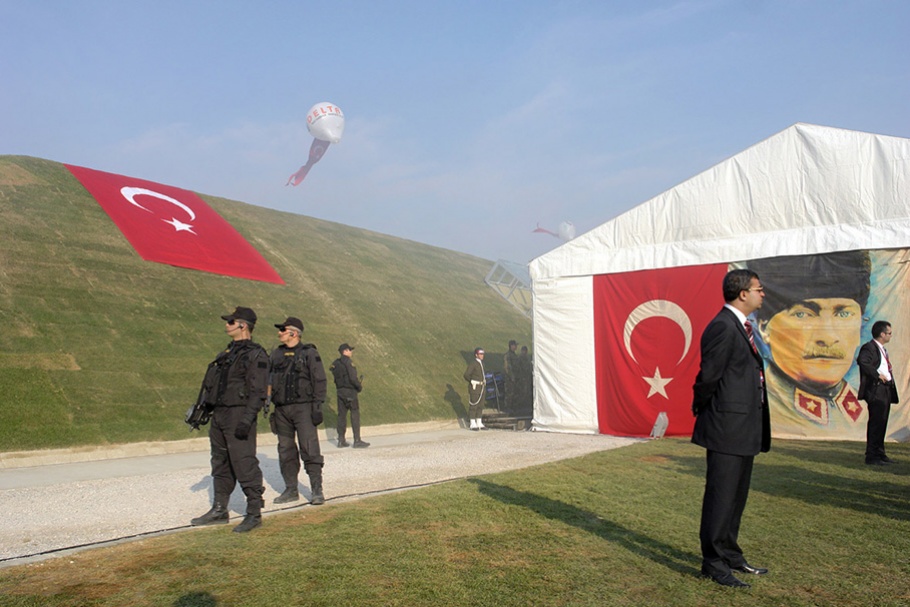
Martyrs' day, Gallipoli, 2007.
George Georgiou was born in London to first generation Greek Cypriots. After completing a BA in photography at the Polytechnic of Central London, Georgiou has worked as a freelance photographer represented by Panos Pictures.
He has photographed extensively in the Balkans and Turkey for the last six years, living and working in Serbia, Greece, and, for the last four years, Istanbul. His work focuses on people caught between communities, cultures, and ideologies.
Georgiou’s awards include two World Press Photo prizes for “The Serbs” and “Flour War,” a Pictures of the Year International first prize for “Istanbul Bombs,” and a Nikon Press Awards UK for best photo essay. His book Fault Lines: Turkey East to West will be published in the fall of 2008 by Mets & Schilt.
Georgiou has moved back to London where he has started a major project on contemporary Britain.
George Georgiou
Turkey is a strategically important nation, poised geographically and symbolically between Europe and Asia. But the tensions at the heart of Turkey are becoming increasingly severe. A fierce struggle is taking place between modernity and tradition, secularism and Islamism, democracy and repression—often in unlikely and contradictory combinations. Usually these tensions focus almost exclusively on Istanbul, the Kurdish issue, or religion, ignoring the far deeper complexities of a large country searching for a modern identity.
While living in Turkey for the last three and a half years, I was surprised at how quickly change was taking place: landscapes, towns, and cities reshaped, an extensive road network under construction, town centers “beautified,” and large apartment blocks springing up at a rapid rate around every town and city. Almost always, the architecture and infrastructure follow the same blueprint. Cities are becoming carbon copies of each other.
This modernization is designed to handle the mass migration from village to city that is transforming Turkey. Istanbul, a city of a million people in 1960, is now one of the world’s largest urban sprawls with an estimated population of over 15 million. The migration is raising a host of new issues.
One of the most immediate concerns is the rapid disintegration of community in Turkish villages and towns. The low-cost housing projects replacing these communities are a model that has generally failed in Europe, though it is too early to tell how they will work in Turkey.
Another issue is that the cosmopolitan urban centers, particularly Istanbul, Ankara, Bursa, and the coastal towns in the south and east, have traditionally been home to the upholders of secular Turkey. The influx of a more provincial, traditional, conservative, and religious population is creating new tensions. This can be seen, for example, in the clash between the mildly religious government of the AKP (Justice and Development Party), whose support comes from the countryside and the new urban population, and the old secular parties of both the left and the right, who oppose all reforms instigated by the government on secular and nationalist grounds. Added to all this, there is a highly politicized and powerful military, which acts as the self-declared guardians of the republic and the image and philosophy of Turkey’s founding father, Mustafa Atatürk.
Turkey is often seen as the country that will bridge the gap between the West and the Middle East. At the moment Turkey is at a political crossroads that will define the very nature of the country. With a large, dynamic, and young population there is always hope that a truly democratic and liberal country will emerge, and that Turkey will be able to fulfill its role as a bridge between cultures and religions.
My work seeks to address and question this process of modernization, urbanization, and national identity that is happening at breakneck speed against a rising tide of nationalism and religion. I have chosen to represent the changes by focusing on the quiet everyday life that most people in Turkey experience.
—George Georgiou, February 2008